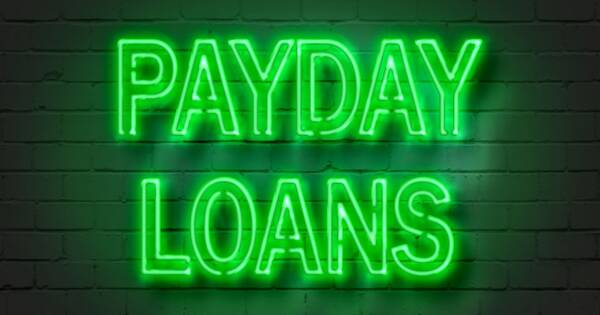One of the things my family has struggled with has been getting approved for loans. Since our primary source of income is my small business, we have to jump through more hoops in order to get the best rates. Unfortunately for us, it’s not as simple as submitting your tax returns and pay stubs. I’ve even had a mortgage not be approved by a lender before, because they didn’t like how my income can fluctuate from month to month.
We ended up having to go with a different lender that time. Even though we had good credit, this second lender was a little concerned about my income as well. We eventually had to show exactly where the revenue was coming from and explain our expenses thoroughly in order to be approved and receive a good rate. Clearly, potential lenders wanted to really make sure we were a good risk.
Luckily, we don’t foresee needing to get another huge loan anytime soon. Still, the fact that I am what amounts to a one-person business will likely create the impression that our family is a poor credit risk for many lenders — no matter the situation. While your situation is probably different than mine, it’s a good financial exercise to ask yourself this question.
How Do Lenders See You?
Whenever you prepare to apply for a loan, whether you want a new credit card or whether you are looking to buy a car or a home, you need to realize how lenders view you. The more likely you are to repay your loan on schedule, the lower the risk you are perceived as. And the lower the risk, the cheaper the lender will offer the loan.
If the lender doesn’t think you are worth the risk, though, they will outright reject your application. There’s no special secret. They act just like you would, if a friend or relative knocked on your door looking for a loan.
Let’s imagine that your brother asked to borrow some money from you to assist with a down payment on a new house for his family. He’s had that steady job forever and always pays you back if he owes you anything. You would at least consider it, because you consider not getting the money back a relatively low risk.
On the other hand, if your other brother — the one who can’t keep a job and always try to weasel out of everything — asks you for help, you’re not very likely to risk the money.
Lenders are no different. They want to know that you will be able to repay the loan. After all, they are the ones putting up the money. If you default, you might see a big hit to your credit score, but it’s not really your money on the line. Lenders want to know that you will pay on time and in full. It’s really no different than you lending money to a friend — except it’s typically a much bigger amount.
When Your Debts Are Sold (and Why It Matters)
Sometimes, especially with mortgages, your lender is only servicing the mortgage by being responsible for the administration of it. After they lend you the money, they turn around and sell your loan (along with many other loans) wholesale to another entity. Many of these go to Fannie Mae and Freddy Mac, now government-sponsored enterprises (GSE), after they were on the brink of collapse during the financial crisis.
If the rules for how lenders judge your risk level for a loan don’t seem to make sense sometimes, it’s because they are determined far in advance. The ratings are typically determined for groups of borrowers, instead of on a case-by-case scenario. That means you might get lumped in a less reliable demographic for one reason or another, even if you don’t belong. That’s what happened to me with my mortgage. I could certainly pay it based on my annual income, but lenders wanted more consistent monthly paychecks.
One way to improve your chances of getting approved for a loan is to find a lender who will actually hold onto your mortgage. With these entities, the people you are in contact with will have more leeway to make exceptions. After all, they aren’t going to turn around and sell your loan to some mega-corporation.
What You Can Do
When I got rejected for that mortgage, I was asking to refinance a loan where I had more than 70% loan-to-value on the mortgage. This means that the housing value would have to drop drastically in order for the bank to lose money. It would have to drop by 70% (in a neighborhood that’s never seen more than a 20% decline) before the bank would lose. And that’s assuming I just stopped paying my mortgage altogether and they have to take over and sell my property.
The real kicker was that I was refinancing with the exact same lender as before and lowering my monthly payment. They know I had been paying the previous amount with no issues, so paying less should have meant eve less risk for the bank! It didn’t make sense at all that they would deny me. But it didn’t matter to the algorithm that spits out results.
I finally went to a different bank. They don’t sell every mortgage they take in to another firm. The second lender had questions too. They wanted to know how I was basically just running the company myself and where money was coming and going. But they went through their internal process and got an exception approved. All they had to do was spend a little bit of time looking into things.
The Bottom Line
When you borrow money, you pay interest on your loans in exchange for having a lump sum up front for your purchase. The bigger the risk you appear to be, the more you pay in fees and interest. If you don’t want to pay more, you have to show that you aren’t a big risk.
When I got my first mortgage, I had to go through an income audit. An accountant looked at where all my money came from, and verified that it was regularly received because of my website. For the refinance I did a few years ago, I had to provide a great deal of documentation before we could close. It finally all worked out, but the process was far from smooth.
If you have a regular W2, it will be much easier. Still, there are a ton of paperwork involved. No matter your situation, if you want a loan, you have to convince the lender that you are a good risk. Your credit score and history will play a big part in this, as will your employment and income histories. The bottom line is that you need to start making yourself into a good risk for lenders long before you ask them for money. Otherwise, be prepared to jump through extra hoops. Plus you’ll probably pay through the nose in the form of high interest rates.
 Shutterstock
Shutterstock







